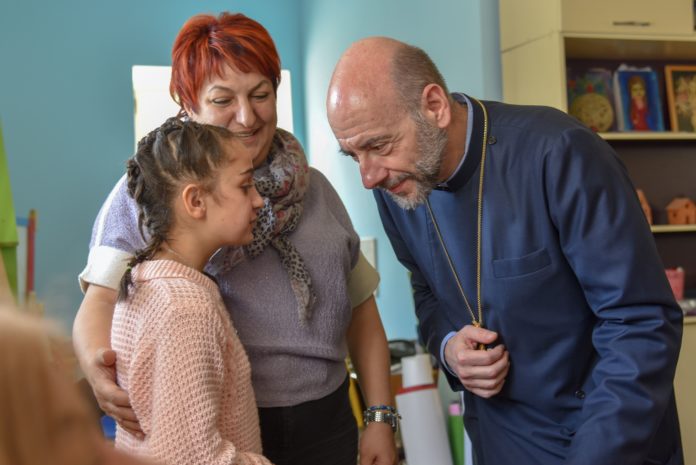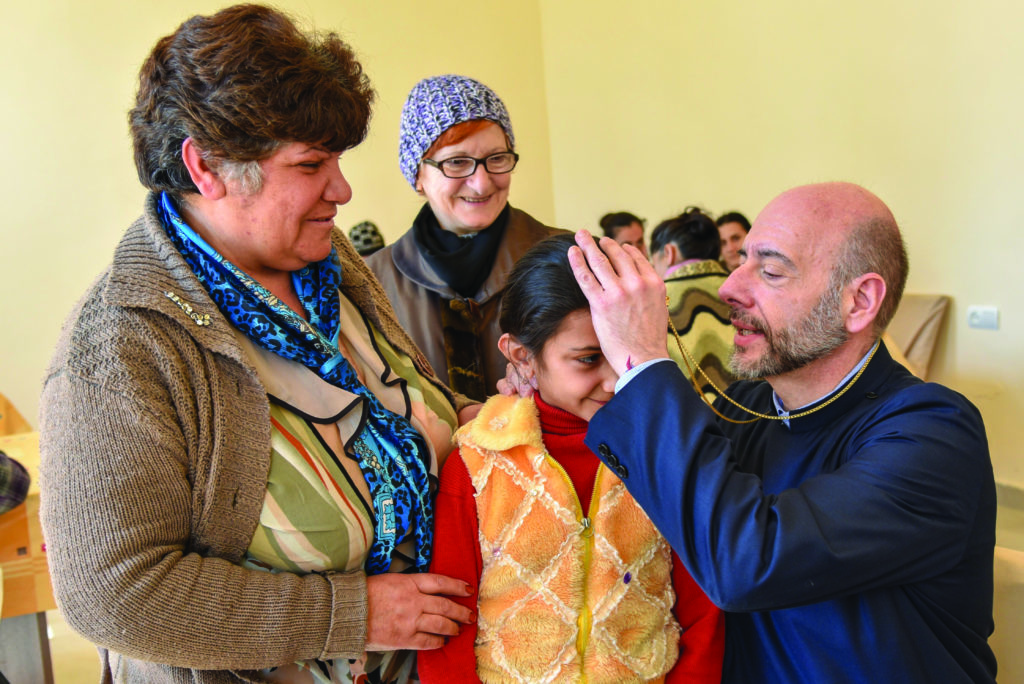By Florence Avakian
NEW YORK — “It was one of the most moving, powerful, and emotional days of my whole life. When I left, I felt love. I didn’t know whether to cry or dance,” said the Eastern Diocesan Primate, the Very Rev. Daniel Findikyan, during an exclusive interview.
The Primate was referring to his three-hour visit to the Fund for Armenian Relief (FAR) Children’s Center in Yerevan, which he undertook during his recent week-long visit to Armenia. It was one of three FAR-funded projects in Armenia that he visited.
Since 1988, the Children’s Center has been the apex in protecting, caring for, rehabilitating, and educating young abandoned, abused, sexually trafficked, tortured children, and transforming and rehabilitating their lives so they can become safe and acclimated members of Armenia’s society.
“My feelings were in a whirlwind as I realized the depth of horror that people can do to others, and the heights that people can also do to help, he stated.”
Paying tribute to the staff, he commented, “they treat the children like their own. The visit was the highlight of my trip.” As he walked into the Center, the director, Dr. Mira Antonyan greeted him, taking him on a tour of the several buildings.









